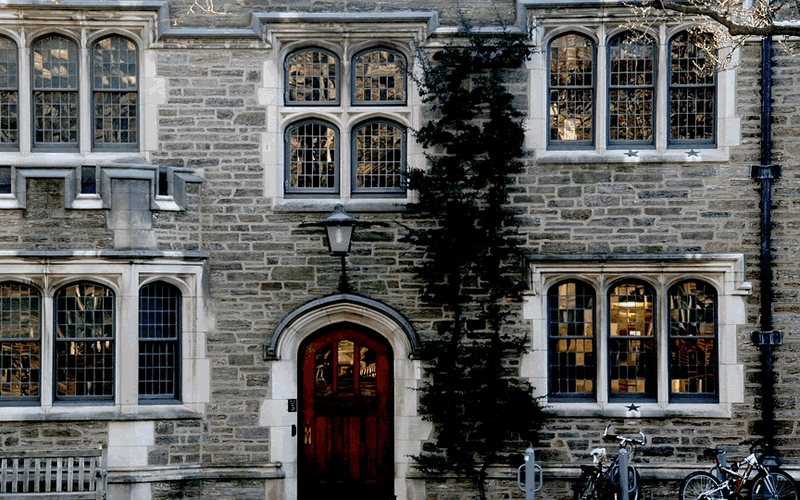
By Lindsay Street, Statehouse Report | South Carolina’s public fund administrator says the agency has been advised to halt federal coronavirus aid to private higher education institutions.
S.C. Department of Administration Executive Director Marcia Adams sent a letter Tuesday to Senate Finance Chair Hugh Leatherman, R-Florence, to discuss halting some of the $115 million set aside by state lawmakers from federal money for state, local government, and independent college and university expenditures. She said the agency sought outside counsel after an S.C. Supreme Court ruling last week stopped governor-directed aid to reimburse tuition at private K-12 schools.
“The ultimate conclusion of our review and the opinion of outside counsel is that Admin must refrain from disbursing money to independent colleges and universities under the Act (154) without further judicial direction,” Adams said in the letter.
Act 154 directed federal aid from the CARES Act through the state’s administration department.
Last week, the S.C. Supreme Court ruled against Gov. Henry McMaster’s allocation of $32 million in federal funding for one-time tuition grants for students attending private K-12 schools because it was in violation of the state’s constitution (Article XI, Section 4).
Orangeburg Democratic Sen. Brad Hutto, whose son litigated the case against the governor’s vouchers, said if Admin stops the aid, it will affect about $12 million slated for private higher education institutions in South Carolina.
With the agency reviewing implications of the ruling, now come questions of other state funds going to private institutions. But those may also have to come in the form of court challenges, Hutto said.
“The Supreme Court doesn’t just go out and hand out advisory opinions,” Hutto said.
One example of state funds regularly being allocated to private institutions is state education lottery funds going to historically black colleges and universities (HBCUs), eight out of nine of which are private. Since 2003, about $52.5 million of the Higher Education Excellence Enhancement Program has gone to private institutions, according to Senate Finance documents.
“It’s the same constitutional provision at play,” Hutto said. “It’s a different issue and it’s related, but someone would have to challenge that if they want to challenge it.”
In other news:
![]() U.S. Supreme Court rejects McMaster Planned Parenthood defunding. The U.S. Supreme Court this week rejected Gov. Henry McMaster’s years-long legal effort to eliminate Medicaid funding for Planned Parenthood clinics in South Carolina. Read more.
U.S. Supreme Court rejects McMaster Planned Parenthood defunding. The U.S. Supreme Court this week rejected Gov. Henry McMaster’s years-long legal effort to eliminate Medicaid funding for Planned Parenthood clinics in South Carolina. Read more.
More than 1M expected to vote absentee in S.C. A record number of South Carolinians have voted absentee, both in person and by mail, and based on current trends, more than 1 million voters will likely vote before election day, according to the state Election Commission. So far, 637,000 absentee ballots have been issued. In 2016, a total of 517,000 voted absentee. And friendly reminder: Voters seeking to vote by mail must return their request application by Oct. 24. Learn more.
Bad ballots in Charleston County reported. More than 1,300 incorrect mail-in ballots were sent out in Charleston County. Those ballots have been resent to the West Ashley voters affected. Read more.
State sees increases in violent crime. 2019 is trying to keep 2020 company on the bad news front: a new report shows murder, aggravated assault and assaults on law enforcement were on the rise last year. Compared with 2018, 2019 saw a 6.7 percent increase in murders, a 4 percent increase in aggravated assaults and a 20 percent increase in assaults against officers. Read more.
Commerce Department can’t keep business deals secret. State circuit Judge Robert Hood ruled this week the S.C. Department of Commerce violated the Freedom of Information laws by keeping basic information secret about financial incentives offered to companies relocating in the state. Read more.
Racial disparities worsen among infant mortality rates. Black infants born in South Carolina were nearly three times as likely to die before their first birthday than white infants, according to a new report looking at data from 2019. Read more.
State inefficient when it comes to energy, report says. South Carolina is among the least-energy efficient states in the nation, according to a new report from WalletHub. The state was listed 34th in transportation efficiency, 41st in vehicle-fuel efficiency and 48th in home energy efficiency. Read more.
Charm v. high energy in the fight for First Congressional District. South Carolina’s First Congressional District race in the Lowcountry has attracted national attention as Democratic incumbent U.S. Rep. Joe Cunningham takes on Republican challenger and state Rep. Nancy Mace. Our sister publication, the Charleston City Paper, published profiles on both candidates this week:



Pingback: 5 Interesting Ways Governors Are Spending CARES Act GEER Funds on Higher Education – Warta Saya